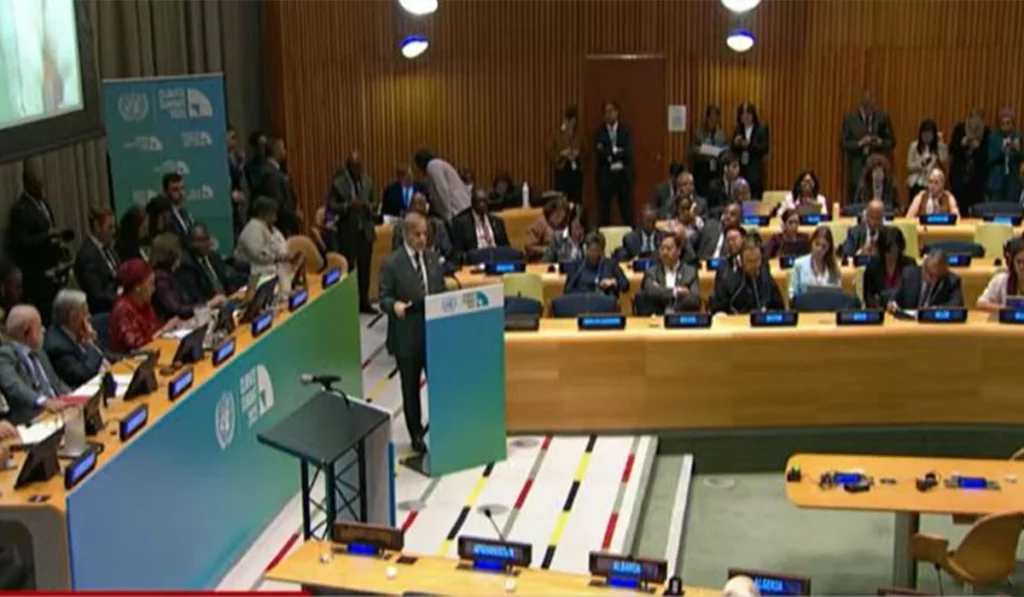Prime Minister Shehbaz Sharif announced that Pakistan will increase the share of renewable energy, including hydropower, to 62% by 2035. The commitment was made during his address at the Climate Summit 2025 on the sidelines of the UN General Assembly in New York.
The Prime Minister also pledged that Pakistan will expand its nuclear energy capacity to 1,200 megawatts by 2030. Alongside this, the government plans to convert 30% of public transport to environment-friendly energy sources. This aligns with Punjab Chief Minister Maryam Nawaz’s electric bus project, which is already being piloted in Lahore.
Responding to Global Climate Debate
Shehbaz’s remarks came a day after former US President Donald Trump dismissed climate change as the “greatest con job ever” and called the concept of the carbon footprint a “hoax.” Trump’s comments sparked global criticism, especially as the United States continues its withdrawal from the Paris Agreement, a landmark climate accord aimed at restricting global temperature rise to below 1.5°C.
Highlighting Pakistan’s vulnerabilities, Shehbaz pointed to the devastating floods and extreme weather events that have displaced millions and caused massive agricultural losses. He emphasized that Pakistan’s climate agenda includes introducing climate-resilient crops and sustainable agriculture to protect food security.
China’s Climate Goals for 2035
On the same stage, Chinese President Xi Jinping shared China’s updated climate targets. He announced that by 2035, China aims to cut greenhouse gas emissions by 7% to 10% compared to its peak.
China’s plans also include ensuring that non-fossil energy accounts for over 30% of total consumption and expanding wind and solar capacity to 3.6 billion kilowatts — six times higher than 2020 levels.
The Paris Agreement and Global Climate Responsibility
UN Secretary-General Antonio Guterres stressed the importance of the Paris Agreement, stating that the pact has already reduced projected global temperature rise from 4°C to 2.6°C.
However, he warned that current commitments are not enough. “We need new climate action plans for 2035 that are deeper, stronger, and implemented at a faster pace,” Guterres said.
Why This Matters for Pakistan
Pakistan is one of the countries most vulnerable to climate change, with frequent floods, droughts, and rising temperatures threatening its economy, agriculture, and infrastructure. The government’s push for renewable energy, nuclear power expansion, and sustainable transport signals a strategic shift toward green development.
This approach could also open doors to foreign investment, green financing, and international partnerships, positioning Pakistan as a responsible player in the global climate movement.

